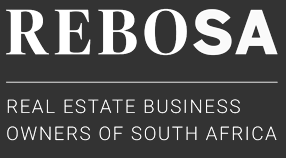Power price shock
Category Advice
South African households are facing an increase of up to 22.2 percent in their monthly electricity bills from July 1.
That's because the crisis-hit power utility, Eskom, which was downgraded further by rating agencies this week, is now seeking more money to pay for its fuel bills to run open-cycle gas turbines and extend its short-term power purchase agreements to avoid load shedding.
Eskom revealed its intentions to apply for a further 9.58 percent tariff increase from the National Energy Regulator of SA (Nersa) on an existing 12.6 percent hike that is set to come into effect direct to consumers on July 1, this week.
In a submission made to the SA Local Government Association and the Treasury on Monday, Eskom cited the deteriorating performance of power stations, the unexpected boiler explosions at Duvha units and the collapse of the Majuba power station silo, as the motivation for its application to Nersa to reopen its multi-year price determination (MYPD) process.
The power utility stated that although the demand for electricity had not increased since the last tariff hike was approved, "the challenges faced with supply options have resulted in significant shortfalls".
"Due to Eskom's financial liquidity crunch, the organisation is not in a position to undertake these options (extending short-term power purchase and operating further open gas turbines) unless cash inflows are received immediately," Eskom wrote in the document, which was leaked to MoneyWeb.
"Hence, the government war room has requested Eskom to submit a limited selective re-opener application for the period of 1 April 2015/16 to 31 March 2018. This application requests Nersa to make a decision on the allowance of costs relating to open gas turbines and short-term power purchase programme for the last three years."
The application to Nersa, Eskom said, was meant to address the electricity challenges now faced.
Charles Hlebela, Nersa spokesman, said the regulator had not yet received an application from Eskom for the reopening of the MYPD, which was approved last year and is due to take effect for municipal customers on July 1.
Eskom was this week downgraded by rating agency Standard & Poor's to junk status following the suspension of the utility's top executives, including CEO Tshediso Matona.
Yesterday, Eskom announced it had terminated its contract for control and instrumentation works (C&I) with Alstom S&E Africa at Kusile power station in Mpumalanga.
The power utility explained ABB South Africa was appointed in Alstom's place to complete the control and instrumentation contract.
Energy expert Chris Yelland remarked that, with its latest application, the utility was now holding the country to "ransom".
"If Eskom doesn't get the price increase, the bottom line is that it won't have enough cash to operate. Either it has to get that amount from the tariff, or from the Treasury, which means the taxpayer. The Treasury doesn't have the money and would like the costs to go onto the customer. The question is can the customer afford this? Can industry afford this?
"If you start hitting this economy with another increase in prices, what is going to happen to our economy, to our competitiveness and to affordability by the poor? This is the dilemma government and Eskom finds itself in.
"But Eskom is basically saying 'if we don't get this money either from Treasury or customers, we won't have the money to buy diesel'. Then we'll have more load shedding. That will cost the economy even more. They are, in a way, in a position to hold the country to ransom because there is no way out of it."
Eskom, he pointed out, was allowed to "claw back" 10 percent from Nersa every year as additional expenses that had been prudently and efficiently incurred. "But if they want more than that, which they do, you have to reopen the whole MYPD process. That means there has to be public hearings, which is a time-consuming and bureaucratic process. It has to be announced in the Government Gazette. Eskom is talking like it's trying to get the money by April 1. I'm not sure the regulatory process allows that.
"But it would say it is incurring huge diesel costs. In the past, the regulator has said those huge diesel costs are being incurred because Eskom is late on Kusile and Medupi and the regulator is not inclined to grant those costs as prudent costs."
Author: Pretoria News Weekend




